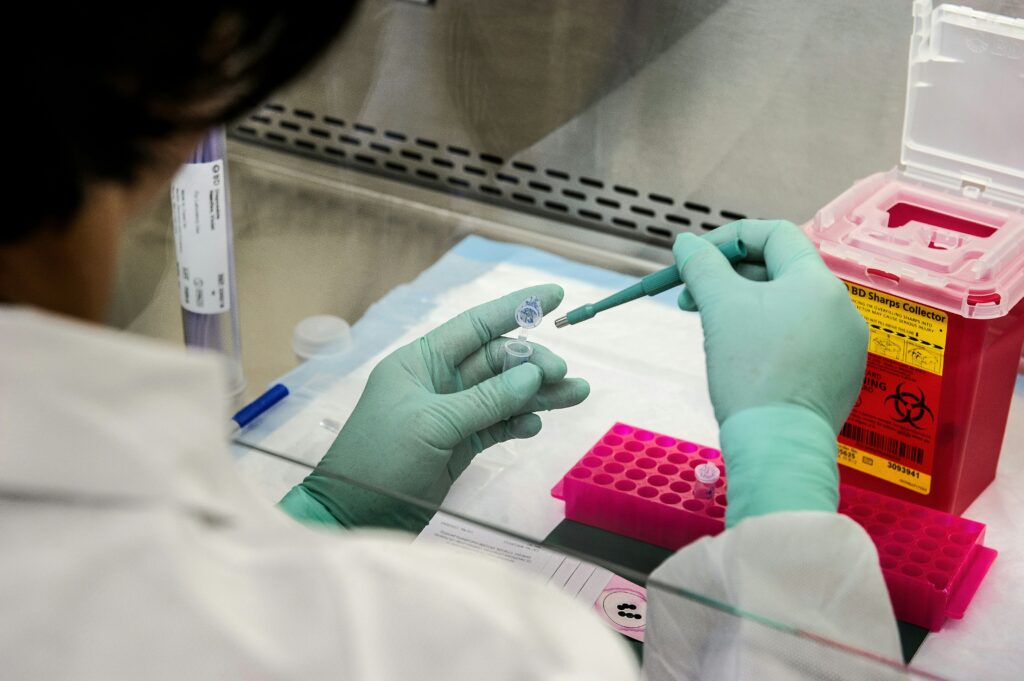The traditional drug discovery process is famously arduous, expensive, and time-consuming, often spanning over a decade and costing billions of dollars with a high rate of failure. However, a new era is dawning as artificial intelligence (AI) and machine learning (ML) begin to dismantle these barriers. These intelligent systems are now actively engaged in every stage of drug development, from identifying promising molecular targets to optimizing lead compounds and even streamlining clinical trials. This paradigm shift promises to deliver more effective therapies to patients faster than ever before.
Recent advancements have seen AI algorithms excel at analyzing vast datasets of genomic information, protein structures, and patient health records. For example, AI can predict how certain compounds will interact with biological systems, reducing the need for extensive wet-lab experiments. Companies are increasingly leveraging AI to identify novel drug candidates that human researchers might overlook due to the sheer complexity and volume of data involved. This computational power significantly shortens the initial phases of drug development, offering a beacon of hope for diseases that have long eluded conventional treatments.
Data-Driven Breakthroughs and Expert Insights
The burgeoning field of AI-driven drug discovery is attracting significant investment and research. Venture capitalists are pouring funds into biotech startups that embed AI at their core, signaling strong confidence in its potential. According to recent market analyses, the global AI in drug discovery market is projected to grow substantially over the next decade, reflecting its disruptive impact.
Leading pharmaceutical executives are also vocal about AI’s pivotal role. “AI is no longer a futuristic concept; it’s an indispensable tool in our arsenal,” states Dr. Anya Sharma, Head of R&D at a major pharmaceutical firm. “It allows us to process and understand biological data at a scale previously unimaginable, leading to more informed decisions and significantly de-risking the drug development pipeline.” The ability of advanced ML models to predict molecular behavior and efficacy with high accuracy is a game-changer, moving beyond trial-and-error to a more predictive science. You can read more about funding trends in this area on TechCrunch’s coverage of AI in biotech.
Accelerating the Path to Personalized Medicine
Beyond speeding up research, AI is also a crucial enabler for personalized medicine. By analyzing an individual patient’s genetic makeup, biomarkers, and health history, AI can help tailor treatments to their specific needs. This capability moves us away from a ‘one-size-fits-all’ approach, leading to therapies that are not only more effective but also carry fewer side effects. This level of precision medicine has the potential to transform how chronic diseases, cancers, and rare genetic disorders are managed.
Impact on Industries and Patients
The implications for the pharmaceutical industry are profound. Companies can expect reduced R&D costs, improved success rates for drug candidates, and a faster time-to-market for life-saving medications. For patients, the benefits are even more critical: access to innovative, highly effective treatments, a reduction in adverse drug reactions, and ultimately, an improved quality of life. AI’s predictive capabilities also extend to public health, aiding in the early detection and management of disease outbreaks.
For a deeper dive into how intelligent systems are reshaping diagnostics, explore our article on Navigating the Future: AI’s Role in Next-Gen Medical Diagnostics.
Charting the Future: Predictions and Potential
Experts predict a future where AI and human ingenuity work in seamless synergy. AI will continue to handle the heavy computational lifting, sifting through massive datasets, identifying patterns, and generating hypotheses, thereby freeing human scientists to focus on experimental validation, creative problem-solving, and ethical considerations. This collaborative model is expected to unlock unprecedented breakthroughs, potentially leading to cures for currently untreatable conditions and extending healthy lifespans.
Furthermore, the integration of AI with other emerging technologies like quantum computing and advanced robotics promises to create an even more powerful ecosystem for scientific discovery. The potential for ‘digital twins’ of human organs or entire physiological systems, powered by AI, could revolutionize pre-clinical testing and drug efficacy evaluation.
A Healthier Tomorrow, Powered by Intelligence
The integration of AI and machine learning into drug discovery is not merely an incremental improvement; it represents a fundamental shift in how we approach healthcare innovation. By harnessing the power of intelligent systems, we are accelerating the development of new treatments, personalizing medicine to individual needs, and ultimately, building a future where health challenges are met with unprecedented scientific rigor and compassionate care. This revolution promises a healthier, more hopeful tomorrow for everyone.

